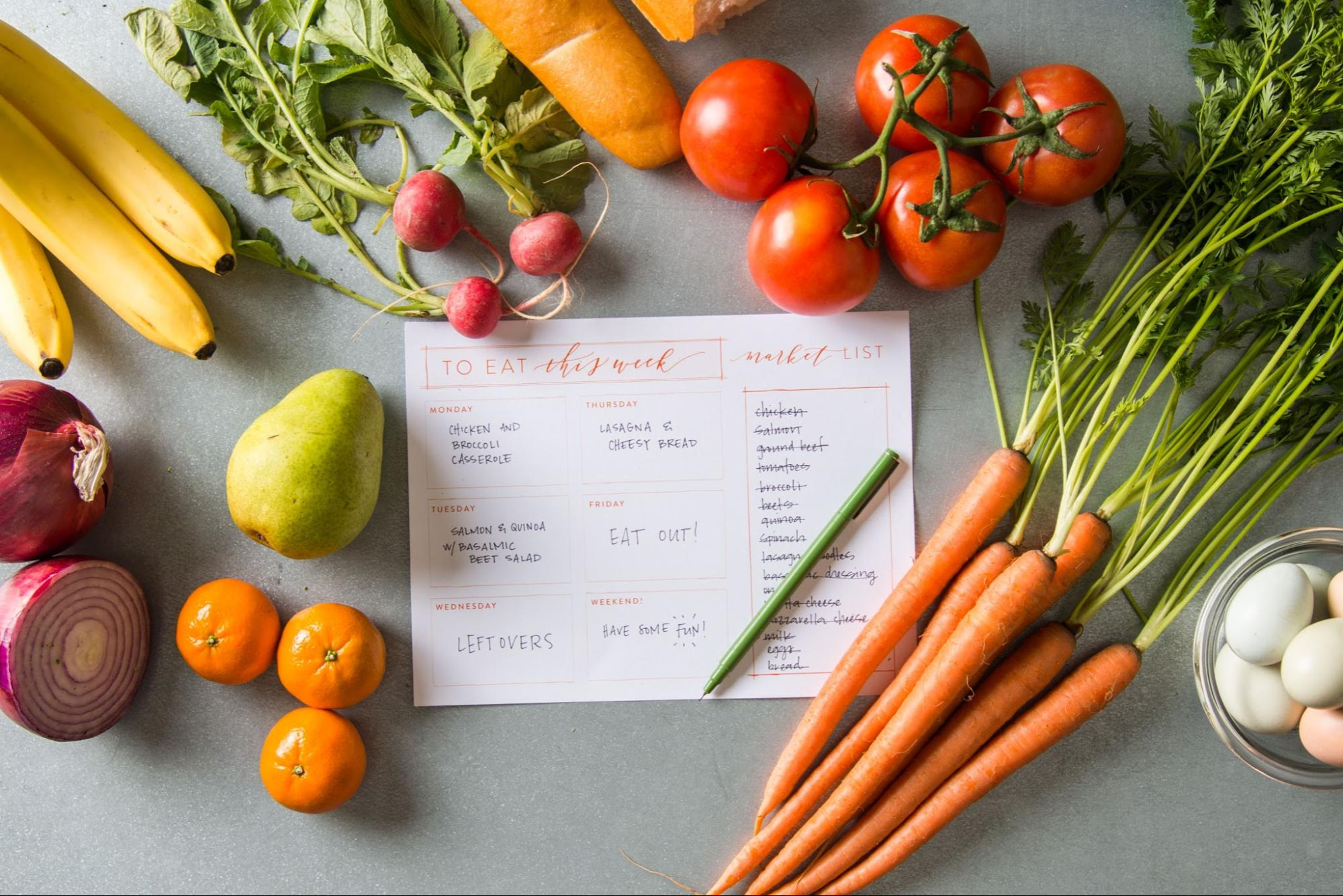Meal planning is a strategic approach to organizing meals for a specific period, typically a week or a month. It involves planning out what you will eat, shopping for the necessary ingredients, and preparing meals in advance. The importance of meal planning cannot be overstated; it can lead to healthier eating habits, time savings in the kitchen, and financial savings at the grocery store. This article aims to provide you with a thorough understanding of meal plans, their benefits, and how to create your own.
Types of Meal Plans
Weekly Meal Plans
Weekly meal plans are designed to cover meals for seven days, allowing you to create a balanced diet without the stress of last-minute decisions. The primary benefit of a weekly plan is that it simplifies grocery shopping and cooking. To create a weekly meal plan, start by choosing recipes that appeal to you, considering seasonal ingredients, and ensuring variety to prevent monotony.
Monthly Meal Plans
Monthly meal plans extend the concept of weekly plans, providing a broader view of your dietary needs over a longer time frame. The advantages include fewer shopping trips and a comprehensive understanding of your meal choices. To develop a monthly meal plan, outline four weekly plans, incorporating themes for different weeks (e.g., Italian week, Mexican week).
Specialized Meal Plans
Vegetarian/Vegan Meal Plans
For those following a vegetarian or vegan diet, specialized meal plans can help ensure that you get all necessary nutrients. Incorporate a variety of fruits, vegetables, legumes, nuts, and grains.
Keto Meal Plans
Keto meal plans focus on high-fat, low-carb meals. Planning helps to maintain ketosis while ensuring variety and satisfaction in your meals.
Paleo Meal Plans
Paleo meal plans emphasize whole foods similar to what our ancestors ate. These plans are rich in lean proteins, fruits, vegetables, nuts, and seeds.
Gluten-Free Meal Plans
Gluten-free meal plans cater to those with gluten sensitivities or celiac disease. This approach requires careful planning to avoid cross-contamination and ensure a balanced diet.
Benefits of Meal Planning
Health Benefits
Meal planning promotes nutritional balance by allowing you to include a variety of food groups in your diet. It also aids in portion control, reducing the temptation to overeat.
Time Management
By planning your meals ahead of time, you can streamline cooking processes, leading to increased efficiency in the kitchen. Additionally, meal planning helps eliminate decision fatigue, allowing you to focus on other important tasks.
Cost Savings
Meal planning can be budget-friendly, as it encourages strategic grocery shopping. By buying only what you need and reducing impulse purchases, you can save money and minimize food waste.

How to Create a Meal Plan
Assess Your Dietary Needs
Begin by evaluating your dietary preferences, restrictions, and nutritional needs. This assessment will guide your meal choices and ensure that your plan aligns with your health goals.
Choose a Planning Method
You can use digital apps or traditional pen-and-paper methods to create your meal plan. Apps often come with built-in recipe suggestions and shopping lists, while traditional methods allow for more personalization.
Gather Recipes
Collect recipes that fit your dietary needs and preferences. Websites, cookbooks, and family recipes can serve as great resources.
Create a Shopping List
Based on your meal plan, compile a shopping list of all the ingredients you’ll need. Organizing this list by grocery store sections can make your shopping trip more efficient.
Adjust for Family Preferences
If you’re planning meals for a family, consider everyone’s preferences and dietary restrictions. Involving family members in the planning process can increase the likelihood of successful meal adherence.
Meal Prep Tips
Best Practices for Meal Prepping
Meal prepping involves preparing ingredients or meals in advance. Batch cooking and using proper storage techniques can save time throughout the week.
Kitchen Tools and Equipment
Invest in kitchen tools such as meal prep containers, a slow cooker, or an Instant Pot to make meal preparation easier and more efficient.
Storing and Reheating Meals
Proper storage techniques, like freezing and labeling meals, can extend shelf life and make reheating easy. Make sure to reheat food to the appropriate temperature for safety.
Sample Meal Plans
Sample Weekly Meal Plan (General)
| Day | Breakfast | Lunch | Dinner | Snack |
|---|---|---|---|---|
| Monday | Oatmeal with fruit | Grilled chicken salad | Quinoa stir-fry | Greek yogurt |
| Tuesday | Smoothie | Turkey wrap | Baked salmon with veggies | Almonds |
| Wednesday | Scrambled eggs | Veggie stir-fry | Pasta with marinara | Carrot sticks |
| Thursday | Chia seed pudding | Quinoa bowl | Chicken tacos | Hummus and pita |
| Friday | Yogurt parfait | Lentil soup | Stuffed peppers | Mixed nuts |
| Saturday | Pancakes | Grilled vegetable wrap | Homemade pizza | Dark chocolate |
| Sunday | French toast | Salad with chickpeas | Roast chicken | Fruit salad |
Sample Weekly Meal Plans for Special Diets
Vegetarian
| Day | Breakfast | Lunch | Dinner | Snack |
|---|---|---|---|---|
| Monday | Smoothie bowl | Quinoa salad | Vegetable curry | Trail mix |
| Tuesday | Avocado toast | Lentil soup | Stuffed bell peppers | Apple slices |
| Wednesday | Chia seed pudding | Chickpea salad | Mushroom risotto | Rice cakes |
| Thursday | Oatmeal | Veggie wrap | Zucchini noodles | Popcorn |
| Friday | Overnight oats | Veggie burger | Thai green curry | Nut butter |
| Saturday | Fruit salad | Falafel bowl | Vegetable stir-fry | Dark chocolate |
| Sunday | Pancakes with fruit | Stuffed avocado | Cauliflower tacos | Yogurt |
Keto
| Day | Breakfast | Lunch | Dinner | Snack |
|---|---|---|---|---|
| Monday | Scrambled eggs with cheese | Chicken salad | Grilled steak with asparagus | Cheese slices |
| Tuesday | Greek yogurt with nuts | Lettuce wraps | Pork chops with broccoli | Hard-boiled eggs |
| Wednesday | Keto pancakes | Cobb salad | Zucchini lasagna | Olives |
| Thursday | Omelette | Tuna salad | Beef stir-fry | Nuts |
| Friday | Smoothie with avocado | Egg salad | Baked salmon | Celery with cream cheese |
| Saturday | Chia seed pudding | Chicken Caesar salad | Meatballs with marinara | Dark chocolate |
| Sunday | Bacon and eggs | Shrimp salad | Stuffed peppers | Cheese crisps |
Printable Meal Plan Templates
For those looking to start meal planning, printable templates can be a helpful resource. They allow you to customize your meals based on your preferences and dietary needs.
Common Challenges in Meal Planning
Sticking to the Plan
One of the most significant challenges in meal planning is sticking to the plan. Life can be unpredictable, and it’s essential to remain flexible and adapt your meals as needed.
Dealing with Cravings
Cravings can derail even the best meal plans. Incorporating small treats or healthier alternatives can help manage these urges without completely straying from your plan.
Adapting Plans for Busy Lifestyles
For those with hectic schedules, meal planning can seem daunting. Quick meal options, batch cooking on weekends, and simple recipes can help accommodate busy lifestyles.

Resources
Recommended Meal Planning Apps
Several apps can aid in meal planning, such as MyFitnessPal, Mealime, and Yummly. These apps provide recipes, shopping lists, and nutritional information.
Websites and Blogs for Recipes
Websites like AllRecipes, BBC Good Food, and blogs dedicated to meal planning can offer inspiration and help diversify your meals.
Community and Support Groups
Joining online communities or social media groups focused on meal planning can provide support, motivation, and additional resources.
FAQs about Meal Planning
What is the best way to start meal planning?
To start meal planning, assess your dietary needs, gather recipes, and create a weekly or monthly plan that suits your lifestyle. Begin with simple recipes to ease into the process.
How do I make meal planning easier?
To simplify meal planning, utilize meal planning apps, prepare meals in bulk, and establish a routine that fits your schedule. Additionally, involve family members to make it more enjoyable.
Can meal planning help with weight loss?
Yes, meal planning can support weight loss by promoting portion control, reducing impulsive eating, and ensuring a balanced diet. By preparing healthy meals in advance, you’re more likely to stick to your weight loss goals.
Meal planning is an effective strategy for maintaining a healthy lifestyle, saving time, and reducing food waste. By understanding the various types of meal plans, their benefits, and how to create them, you can simplify your meal preparation process and make informed dietary choices. We encourage you to start your meal planning journey today and explore the resources available on this website for further guidance
